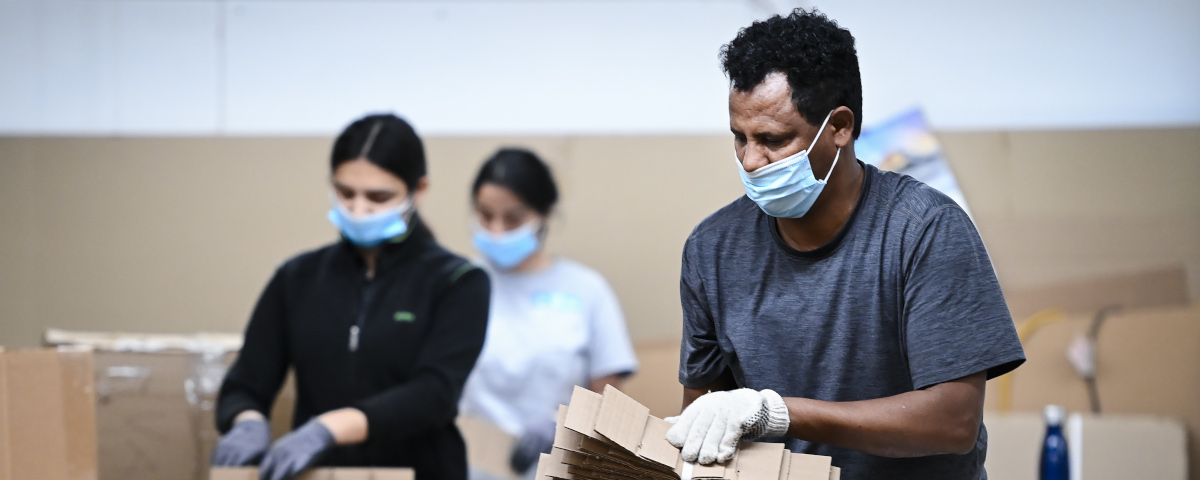On November 22, 2022, as part of the Ontario Chamber of Commerce’s Ontario Economic Summit, The Hub’s executive director Rudyard Griffiths moderated a “Munk-style” debate involving Globe and Mail columnist Andrew Coyne, C.D. Howe Institute CEO Bill Robson, former Ontario Cabinet minister Sandra Pupatello, and The Hub’s own editor-at-large Sean Speer. The debate’s resolution read: Be It Resolved: Ontario Needs Reshoring as Part of Its Growth Agenda. Pupatello and Speer argued in favour of the motion. Coyne and Robson against it. The Hub is honoured to publish the debaters’ opening statements.
What does “reshoring” mean?
Stripped of the rhetoric, it means that, instead of leaving businesses to decide whether to make things in Ontario or elsewhere, based on which makes the most sense to them, the government should force them to make things here, by means of tariffs, Buy Ontario policies, and the like. Or else it should bribe them to do so, with subsidies.
Why would we want to do this? Obviously, we want Ontario to be an attractive place to invest in: because it has the lowest costs, the best-trained workforce, etc. But what are the arguments for forcing, or bribing, business to invest here?

One argument might be that it’s just generally better to produce things here than to import them: the case against imports—against trade, in other words—that protectionists have been trying to make for centuries.
The other, more sophisticated, acknowledges the general case for trade but argues that the turbulence of today’s world—supply-chain disruptions, the weaponization of trade by unfriendly nations—demands that we make exceptions.
Let’s start with the first: the idea that government should force or bribe businesses to invest in Ontario, rather than simply make it the sort of place they would choose to invest in, willingly.
We should note in passing that when business has to be bribed or threatened to invest somewhere, the investment typically only lasts for as long as the bribe or threat does.
But in fact the whole premise of the exercise is misguided.
The reason we trade with others is because it makes economic sense—not just for business, but for everyone—that some things should be produced here and other things elsewhere. That’s not just why we trade with other countries. It’s why Ontario trades with other provinces. It’s why northern Ontario trades with southern Ontario.
Rather than everyone trying to do everything themselves, we specialize. We divide up the job. We make the things we’re best at making, they make the things they’re best at, and we trade each for the other. Each side gains from the other’s technical know-how and factor endowments, as both do from the resulting economies of scale. Trade makes both sides better off. Otherwise, it wouldn’t take place.
Who should decide which things should be produced here, and which elsewhere? Simple: consumers. Why consumers? Because that’s what an economy is for. We produce things for one reason only: to consume them.
Through the choices they make in the marketplace, consumers decide what should be produced, how, by whom—and where. Consumers force businesses to drive costs lower and productivity higher. Which is the only reliable way to raise living standards.
When we prevent consumers from playing that role, when we substitute government choices for consumer choices, we are saying some other criterion, rather than prices or productivity—or living standards—should apply. That may be many things, but a “growth agenda” it ain’t.
What about that more sophisticated case, the one based on security of supply? The shortages of critical goods, things like vaccines and masks, that emerged during the pandemic, the disruptions to global supply chains since then, the readiness of Russia and China to use trade as a weapon: all these hold important lessons.
But what are those lessons, exactly? That businesses need government to tell them how to mitigate supply-chain risk? No. Generally speaking, businesses can figure that out for themselves. But what about for critical goods? Is the lesson, as some have argued, that we should not have been so exposed: that we should not have relied on foreign suppliers of these goods but should make them all ourselves?
Or is it that we should have been better prepared? That is, we should have stockpiled these goods, or struck forward contracts for them, in anticipation of such a crisis. Fine: but nothing says they have to be produced here. We can still buy from the lowest-cost supplier, wherever it may be found. We just have to plan ahead.
The exception, of course, is hostile actors like Russia or China. Yes, trade makes both sides better off. But we do not want to make them better off, even at the cost of making ourselves a little worse off. And we certainly don’t want to leave ourselves hostage to their willingness to supply us in a crisis, as Europe has learned.
All of which might make the case for trading more with countries other than Russia or China, and less with them: for “friend-shoring,” as it has been called, narrowing our trading circle a little, to countries that, if they are not exactly our friends, are at least not our enemies.
It does not begin to make the case for reshoring. Yes, we should prefer the things we buy are not made in countries that are scheming to destroy us. No, we should not prefer they are made in Ontario.
Recommended for You

‘A celebration of the spirit of Alberta’: Ryan Hastman on the political, economic, and cultural importance of the Calgary Stampede

‘Can we actually be an independent country?’: Michael Ignatieff on the 60th anniversary of Lament for a Nation

Fred DeLorey: Why the NDP may be in even bigger trouble than we think

DeepDive: Canada desperately needs its own Department of Government Efficiency—but one with a heart



